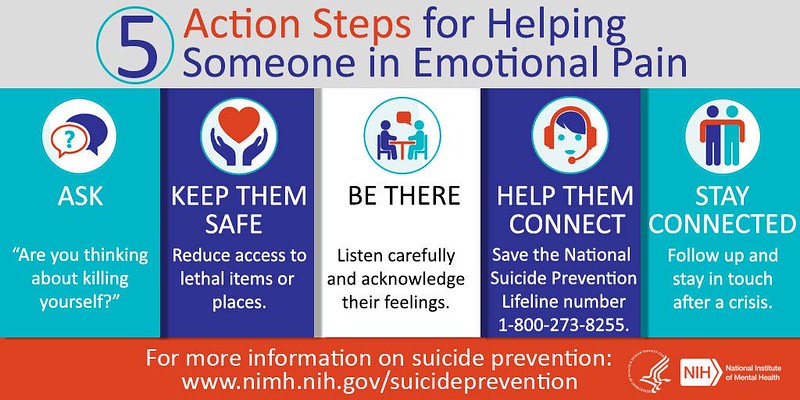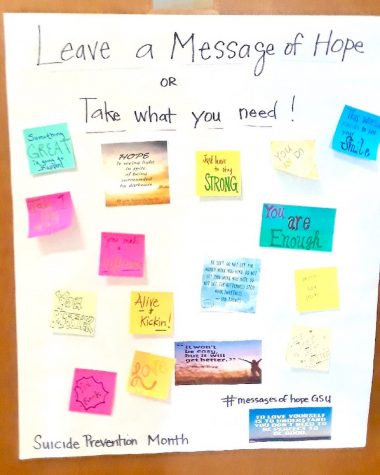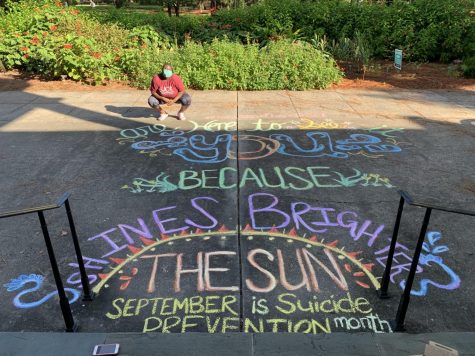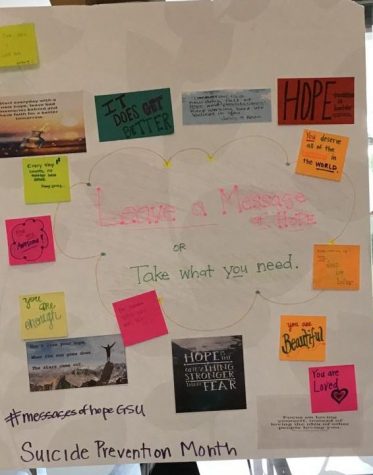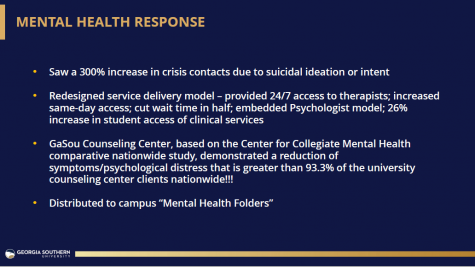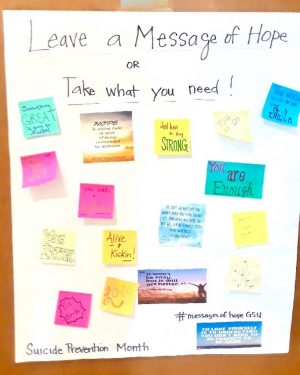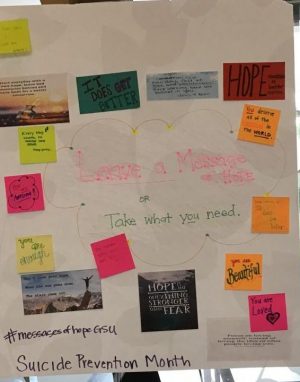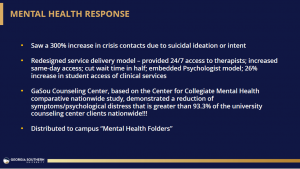How to talk to a friend who is thinking about committing suicide
A guide to start the conversation (resources linked at the bottom)
September 6, 2021
Starting a conversation about suicide can be a daunting task, so in honor of Suicide Awareness Month, the George-Anne Inkwell wants to provide you with the tools you need to start the conversation.
First, remember a suicide attempt or a threat of an attempt is a medical emergency, and it requires immediate professional help.
If someone you love is experiencing suicidal thoughts, you can help by doing any of the following
- Call 911 or the National Suicide Hotline at 1-800-273-TALK (8255)
- If you do not want to talk, you can text HOME the National Alliance for Mental Illness (NAMI) Crisis Text Line at 741-741 to be connected to a free, trained crisis counselor.
- Remove the means a person could use to kill themselves from the room (e.g. stockpiled pills, guns, knives)
- Call a health care provider who has been working with the person (e.g. primary care provider, psychiatrist, or therapist)
- Veterans can call the National Suicide Prevention Hotline and press 1 for the Veterans Crisis Line or text the Veterans Crisis Line at 838255
- “Georgia Crisis & Access Line: 1-800-715-4225, a direct line to mental health emergency providers in GA,” according to Amanda Kort, a counselor at the Georgia Southern counseling center.
Some warning signs that someone may be at risk for suicide include
- Talking about wanting to die or kill themselves
- Talking about having no reason to live, being in unbearable pain, feeling trapped or feeling hopeless
- Talking about how they are burden to others
- Increased substance abuse (alcohol or drugs)
- Behaving recklessly
- Withdrawing or isolating from others
- Sleeping too little or too much
- Eating too little or too much
- Extreme mood swings
- Acting anxious or irritated
- Writing a will or giving away important items
- Researching ways to die
- Withdrawing or saying goodbye
When you are ready to start the conversation about suicide with your loved one, the NAMI Navigating a Mental Health Crisis Guide recommends starting the conversation with a specific observation such as “I noticed you haven’t been sleeping a lot.”
Then, they suggest asking if the person is thinking about killing themselves, without asking in a way that expects “no.” to be the answer.
This: “Are you thinking about suicide?”
Not this: “You’re not thinking about suicide, are you?”
As the conversation continues, NAMI, the Suicide Prevention Lifeline offer Dos and Don’ts of the conversation.
- Do allow the person to express their feelings
- Do make yourself available to show your support
- Do speak honestly and directly about suicide
- Do try to keep your feelings off your face and your body language neutral
- Do be patient
- Don’t judge, lecture the person on the value of life or debate whether suicide is right or wrong.
- Don’t appear shocked or nervous.
- Don’t dare the person to commit suicide.
- Don’t promise secrecy.
- Don’t try to handle the situation alone.
- Call 911 or the National Suicide Hotline at 1-800-273-TALK (8255)
- Call a health care provider who has been working with the person
- Don’t argue, threaten or shout.
- Don’t minimize the person’s feelings with phrases like
- “We all go through tough times like these. You’ll be fine.”
- “It’s all in your head. Just snap out of it.”
For more information, about how to help someone struggling with suicidal thoughts:
- Visit the Help Someone Else page on the National Suicide Prevention Lifeline website
- Read Georgia Southern’s Suicide Prevention Tool Kit
- Read Georgia Southern’s H.E.R.O folder
- Visit the Georgia Southern counseling center’s website or call them at 912-344-2529 for Armstrong and 912-478-5541 for Statesboro
- Read The George-Anne Inkwell articles “Suicidal Thoughts Don’t Discriminate” and “Suicide Prevention on the Armstrong Campus.”

